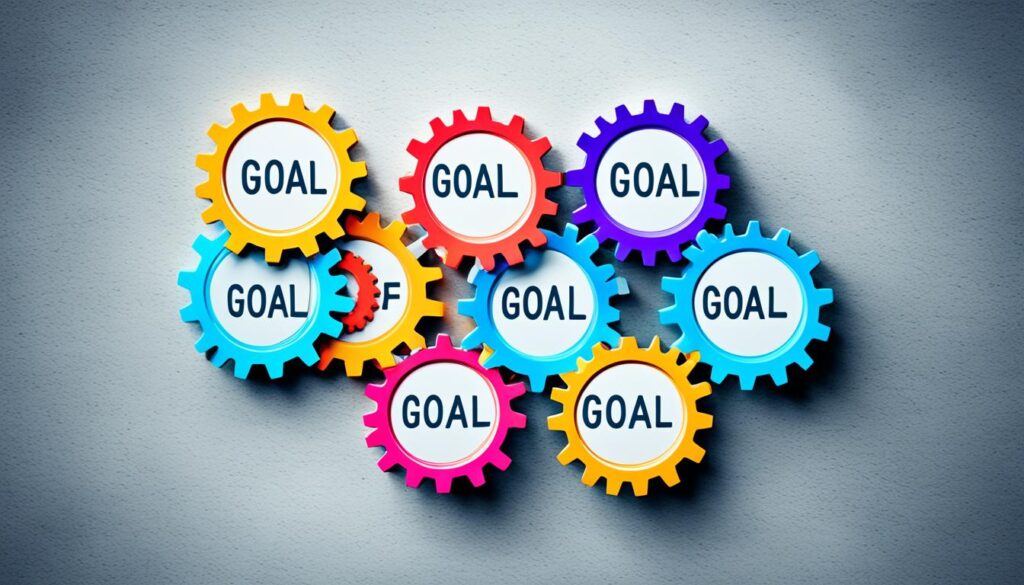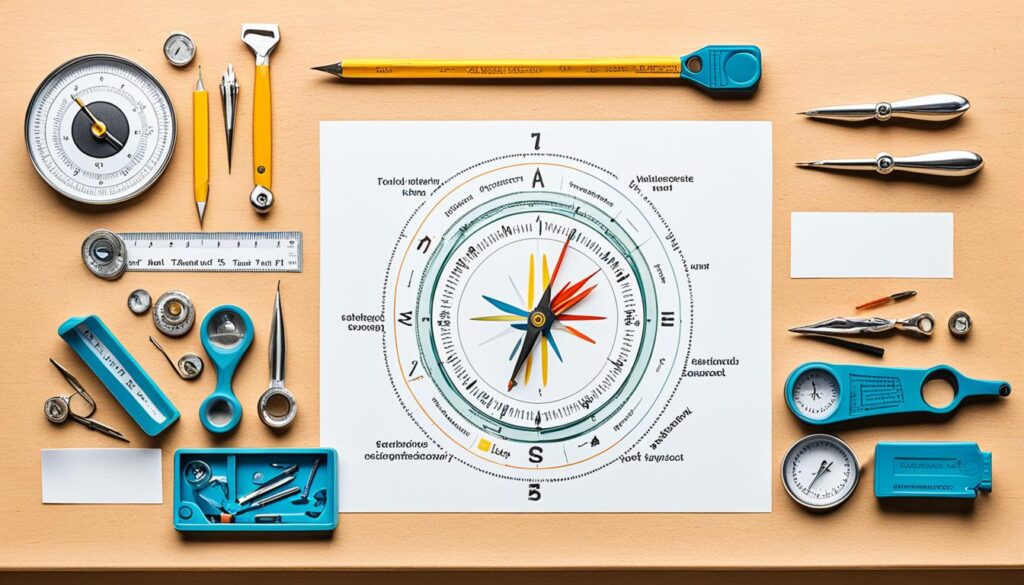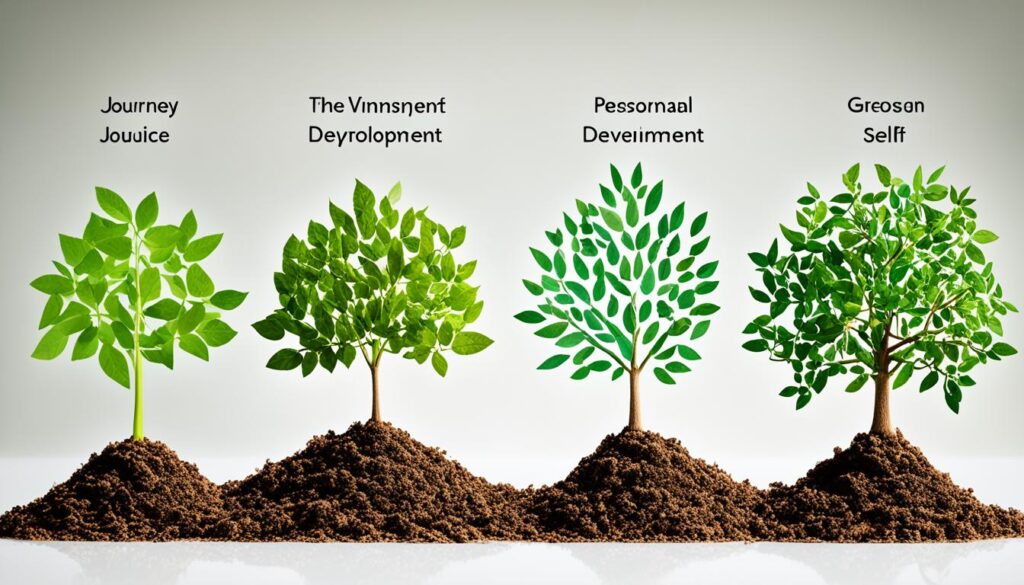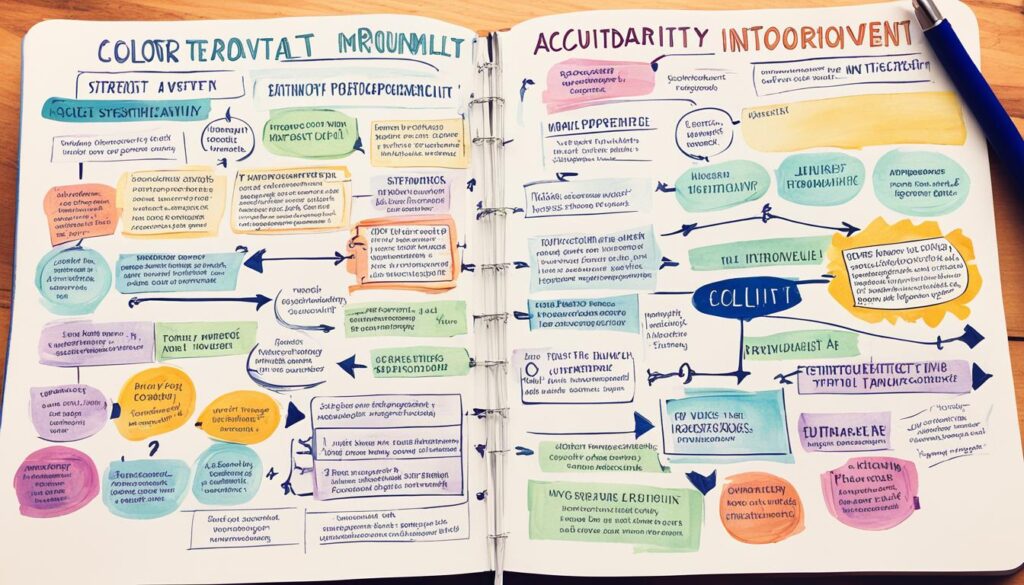Self-improvement is an essential aspect of personal growth and development. It involves consciously working on oneself to enhance various aspects of life. A systematic self-improvement technique refers to a structured approach that individuals can adopt to achieve their goals and improve their overall well-being. It involves implementing specific methods and strategies, such as setting goals, creating routines, developing new habits, and continuously learning and growing. By following a systematic self-improvement technique, individuals can enhance their self-awareness, increase productivity, improve relationships, and achieve personal growth and success.
Key Takeaways:
- Systematic self-improvement involves a structured approach to personal growth and development.
- Methods and strategies such as goal setting, creating routines, and continuous learning are key components of a systematic self-improvement technique.
- By following a systematic self-improvement approach, individuals can enhance self-awareness, increase productivity, improve relationships, and achieve personal growth and success.
- Setting clear and achievable goals is an integral part of systematic self-improvement.
- Developing healthy habits and practicing effective time management are essential for systematic self-improvement.
The Importance of Self-Improvement
Self-improvement is a fundamental aspect of personal development. It empowers individuals to enhance various areas of their lives and become the best versions of themselves. By actively engaging in self-improvement techniques, individuals can cultivate new skills, develop a positive mindset, and overcome obstacles. This section explores the significance of self-improvement and highlights the effectiveness of personal development strategies, self-growth techniques, and self-help practices.
Self-improvement strategies and techniques play a vital role in personal development. By embracing self-improvement, individuals gain the ability to identify areas for growth and take meaningful action to enhance their lives. Through systematic self-improvement, individuals can cultivate essential skills that contribute to personal success and fulfillment.
One of the primary benefits of self-improvement is the cultivation of self-confidence. By actively working on personal growth, individuals can build a strong belief in their abilities and potentials. This self-confidence enables them to face challenges with resilience and strive for greater achievements.
Moreover, self-improvement strategies foster the improvement of relationships. By working on oneself, individuals can enhance their communication skills, empathy, and understanding. These improvements contribute to healthier and more fulfilling relationships with others.
Self-improvement techniques also serve as a roadmap for individuals to achieve their goals. Through the implementation of structured personal development strategies, individuals can optimize their progress towards specific objectives. Whether it is career advancement, financial stability, or personal fulfillment, self-improvement techniques provide individuals with the tools to achieve their aspirations.
In summary, self-improvement is vital for personal growth and development. It empowers individuals to cultivate self-confidence, improve relationships, achieve goals, and lead a more fulfilling and successful life. The following sections will delve deeper into specific self-improvement strategies and techniques that will aid individuals in their journey towards personal growth and self-fulfillment.
Setting Goals for Self-Improvement
Setting goals is an essential part of systematic self-improvement. By establishing clear and achievable objectives, individuals can provide direction and focus to their self-improvement journey. Effective goal setting involves identifying specific, measurable, attainable, relevant, and time-bound (SMART) goals that align with personal growth strategies. These goals serve as a roadmap, guiding individuals toward their desired outcomes and motivating them to take consistent action.
When setting self-improvement goals, it’s important to choose self-development tools and effective techniques that suit individual needs and ambitions. This may include personal growth strategies such as:
- Creating a vision board to visualize goals
- Maintaining a journal for reflection and progress tracking
- Seeking guidance from a mentor or coach
- Participating in self-improvement workshops or courses
By utilizing self-development tools and techniques, individuals can enhance their self-awareness, productivity, and overall personal growth. These strategies enable individuals to stay accountable, track progress, and celebrate achievements.
SMART Goal Example
Let’s take an example of an individual who wants to improve their public speaking skills:
“I will enroll in a public speaking course and practice delivering presentations at least twice a month for the next six months to enhance my communication skills and confidence.”
This SMART goal follows the criteria mentioned above to make it specific, measurable, attainable, relevant, and time-bound. It provides the individual with a clear direction and timeline to work towards improving their public speaking abilities.
| Benefits of Setting Goals for Self-Improvement |
|---|
| 1. Provides clarity and focus. |
| 2. Increases motivation and commitment. |
| 3. Allows for progress tracking and evaluation. |
| 4. Enhances self-discipline and accountability. |
| 5. Celebrates achievements and boosts self-confidence. |

Creating Daily Routines
Establishing daily routines is a powerful technique for self development and systematic self improvement. Routines provide structure and consistency to our lives, enabling us to develop healthy habits and progress towards our goals. By incorporating activities such as exercise, meditation, learning, and reflection into our daily routines, we can optimize our time and energy. Daily routines help us build discipline, improve productivity, and create a sense of balance and well-being.
The Benefits of Daily Routines
By following a consistent daily routine, we can reap numerous benefits for our self improvement journey. Here are some key advantages:
- Optimized Time Management: Daily routines enable us to prioritize important tasks and efficiently manage our time.
- Increased Productivity: By incorporating regular activities into our routines, we can enhance our focus and accomplish more.
- Building Healthy Habits: Daily routines allow us to develop and reinforce positive habits that support our self improvement goals.
- Sense of Balance: Having a structured routine provides a sense of balance, reducing stress and increasing overall well-being.
Examples of Daily Routine Activities
When designing our daily routines, it’s essential to include activities that align with our self improvement goals. Here are some examples:
| Morning Routine | Afternoon Routine | Evening Routine |
|---|---|---|
| 1. Exercise 2. Meditation 3. Journaling |
1. Learning 2. Skill development 3. Networking |
1. Mindfulness practice 2. Reflection 3. Gratitude journaling |
Tips for Creating Effective Daily Routines
To make the most of our daily routines, consider the following tips:
- Start small: Begin by incorporating a few activities into your routine and gradually expand as you become more comfortable.
- Be consistent: Stick to your routine as much as possible, even on weekends or when facing challenges.
- Prioritize self-care: Allocate time for self-care activities that recharge and rejuvenate you.
- Adapt as needed: Be flexible and adjust your routine as circumstances change or new goals emerge.
By creating and following a daily routine, we can enhance our self development journey and systematically improve ourselves. Daily routines provide us with the structure, discipline, and balance we need to achieve our self improvement goals and lead a more fulfilling life.
Continuous Learning and Growth
Lifelong learning and continuous growth are essential components of systematic self-improvement. By acquiring new knowledge, developing new skills, and expanding their perspectives, individuals can enhance their personal and professional lives.

- Reading books
- Attending seminars
- Enrolling in courses
- Seeking mentorship
By making a commitment to ongoing learning and growth, individuals can continuously evolve and adapt to new challenges and opportunities.
Continuous learning is the key to personal development as it allows individuals to constantly acquire new knowledge and skills, enabling them to stay relevant in a rapidly changing world.
Developing Healthy Habits
Developing healthy habits is a crucial aspect of systematic self-improvement. Habits are repetitive behaviors that become automatic over time. By consciously cultivating positive habits, individuals can improve their well-being and overall quality of life.
Healthy habits may include practices such as:
- Regular exercise
- Healthy eating
- Adequate sleep
- Mindfulness
By consistently engaging in these habits, individuals can improve their physical and mental health, boost their energy levels, and enhance their overall personal growth.
The Power of Healthy Habits
Healthy habits have a profound impact on various aspects of our lives. They can:
| Aspect | Benefits |
|---|---|
| Physical Health | Improved fitness, increased energy levels, reduced risk of chronic diseases |
| Mental Well-being | Reduced stress, improved mood, enhanced cognitive function |
| Productivity | Enhanced focus, better time management, increased efficiency |
| Personal Growth | Greater self-discipline, increased self-confidence, enhanced self-awareness |
| Relationships | Improved communication, better emotional well-being, stronger connections |
Developing and maintaining healthy habits is a lifelong journey. It requires commitment, consistency, and self-discipline. However, the rewards are well worth the effort. By prioritizing and nurturing healthy habits, individuals can lay the foundation for a prosperous and fulfilling life.
Time Management and Productivity
Effective time management and productivity strategies are essential components of a self-growth approach. By efficiently managing time and prioritizing tasks, individuals can optimize their productivity and make progress towards their self-improvement goals.
One effective method for time management is the use of to-do lists. By creating a list of tasks and prioritizing them based on importance and urgency, individuals can stay organized and focused. This approach helps individuals allocate their time effectively and ensures that crucial tasks are completed.
“The key is not to prioritize what’s on your schedule, but to schedule your priorities.”
Breaking down larger goals into smaller, manageable steps is another productivity strategy. This approach allows individuals to tackle tasks one by one, making progress towards the ultimate goal. By focusing on smaller, more achievable milestones, individuals can maintain motivation and a sense of accomplishment.
Time Management and Self-Improvement
Effective time management is crucial for implementing effective self-improvement methods and personal growth strategies. It allows individuals to allocate dedicated time for activities such as learning, practicing new skills, and reflecting on their progress.
A well-managed schedule ensures that self-improvement activities are given priority and integrated into daily routines. By intentionally setting aside time for self-growth, individuals demonstrate a commitment to their personal development and create a path towards continuous improvement.
Productivity Strategies for Self-Improvement
While time management is important, maximizing productivity is equally essential for self-improvement. Here are some strategies for enhancing productivity:
- Eliminate distractions: Minimize interruptions by creating a conducive environment for focused work. Turn off notifications on electronic devices, find a quiet space, and limit time spent on non-productive activities.
- Practice the Pomodoro Technique: This technique involves working for a set period, typically 25 minutes, followed by a short break. Breaking work into small, concentrated bursts can increase productivity and prevent burnout.
- Delegate and automate: Identify tasks that can be delegated or automated to free up time for more important activities. Leveraging technology and outsourcing can help individuals focus on high-value tasks.
- Take regular breaks: Schedule short breaks throughout the day to recharge and rejuvenate. Stepping away from work periodically can improve focus and prevent mental fatigue.
Implementing effective time management and productivity strategies will not only enhance efficiency but also contribute to personal growth and development. By optimizing time and productivity, individuals can make the most of their self-improvement journey and achieve their goals.

Embracing Change and Adaptability
Embracing change and adopting an adaptable mindset are essential elements of a successful systematic self-improvement approach. In life, change is inevitable, and being open to new experiences and ideas allows individuals to grow and evolve.
“Change is the only constant in life.” – Heraclitus
By embracing change, individuals can expand their horizons, challenge themselves, and unlock new opportunities for personal growth and development. It requires letting go of old habits, beliefs, and comfort zones to make room for progress and transformation.
“The only way to make sense out of change is to plunge into it, move with it, and join the dance.” – Alan Watts
One of the key aspects of systematic self-improvement is adapting to new circumstances and learning from setbacks. It’s important to approach challenges as opportunities for growth and to view failures as valuable learning experiences.
“Failure is simply the opportunity to begin again, this time more intelligently.” – Henry Ford
An adaptable mindset enables individuals to navigate the ever-changing landscape of life with resilience and confidence. It allows them to adjust their strategies, learn from mistakes, and seize unexpected opportunities. Embracing change and adaptability is a fundamental aspect of systematic self-improvement, enabling individuals to continuously improve themselves and achieve personal growth.
Benefits of Embracing Change and Adaptability in Self-Improvement:
- Greater resilience and flexibility in the face of challenges
- Increased openness to new opportunities and experiences
- Improved problem-solving and decision-making abilities
- Enhanced personal growth and learning
- Expanded comfort zone and willingness to step outside of it
- Improved ability to adjust strategies and embrace innovation
- Increased creativity and adaptability in various aspects of life
- Development of a growth mindset and a positive attitude towards change
Embracing change and adaptability is not always easy, as it requires stepping into the unknown and embracing uncertainty. However, by cultivating these qualities, individuals can experience profound personal growth and transformation.
“Change your thoughts and you change your world.” – Norman Vincent Peale
By embracing change and adaptability as part of a systematic self-improvement process, individuals lay a foundation for continuous self-growth and long-term success.
Cultivating Self-Reflection and Awareness
Self-reflection and self-awareness are essential for systematic self-improvement. By taking time to reflect on their thoughts, emotions, and behaviors, individuals can gain valuable insights into themselves and their lives. Self-reflection allows individuals to identify areas for growth, challenge limiting beliefs, and make necessary changes. Developing self-awareness enables individuals to understand their strengths, weaknesses, and values, leading to more informed decision-making and conscious actions. Regular self-reflection promotes personal growth and fosters a deeper understanding of oneself.
Benefits of Self-Reflection
Self-reflection provides a powerful tool for self-improvement, allowing individuals to:
- Gain insights into personal thoughts, emotions, and behavior patterns
- Identify strengths and areas for improvement
- Challenge and overcome limiting beliefs
- Make necessary adjustments and changes
- Promote personal growth and development
By cultivating self-reflection as a regular practice, individuals can enhance their self-awareness, gain clarity about their goals and values, and make conscious choices that align with their personal growth journey.
Self-reflection is the key that unlocks the door to self-improvement. It allows us to see ourselves for who we truly are and empowers us to make the changes necessary for personal growth and development.
Developing Self-Awareness
Self-awareness is the foundation of personal growth and self-improvement. It involves understanding one’s own thoughts, emotions, and behaviors, as well as recognizing how they impact oneself and others. Developing self-awareness can be facilitated through various techniques, such as:
- Mindfulness meditation
- Journaling
- Seeking feedback from trusted individuals
- Engaging in self-assessment exercises
By embracing these practices, individuals can deepen their self-awareness, gain a better understanding of their strengths and weaknesses, and make conscious choices that contribute to their self-improvement journey.

Self-reflection and self-awareness are powerful tools in the self-improvement toolkit. By regularly engaging in these practices, individuals can gain valuable insights, identify areas for growth, and make informed decisions that lead to personal development and success.
Building Supportive Relationships
Building supportive relationships is a fundamental aspect of systematic self-improvement. Surrounding oneself with positive and supportive individuals can provide encouragement, motivation, and guidance on the self-improvement journey. Healthy relationships offer a space for personal growth, self-reflection, and accountability. By fostering meaningful connections with others, individuals can create a supportive network that uplifts and empowers them to achieve their self-improvement goals.
When it comes to effective self-growth techniques, having a strong support system plays a vital role. Supportive relationships provide a nurturing environment where individuals can openly discuss their aspirations, challenges, and progress. This network can offer valuable insights, practical advice, and emotional support, acting as a safety net during times of self-doubt or setbacks.
“Surround yourself with only people who are going to lift you higher.”
– Oprah Winfrey
A supportive network also holds individuals accountable for their self-improvement efforts. Friends, mentors, or accountability partners can help individuals stay motivated, provide constructive feedback, and remind them of their goals. Regular check-ins, shared milestones, and joint activities foster a sense of responsibility and commitment within the group.
Moreover, supportive relationships offer opportunities for personal growth and self-reflection. Interacting with individuals who share similar interests or are on their own self-improvement journeys can lead to insightful discussions, exchange of ideas, and inspiration. Hearing about others’ experiences and challenges can broaden one’s perspective and provide new approaches to self-improvement.
Benefits of Supportive Relationships in Systematic Self-Improvement
Building supportive relationships as part of a structured self-improvement process comes with several benefits:
- Encouragement and motivation to stay committed to self-improvement goals
- Opportunities for learning and gaining insights from others’ experiences
- Emotional support during challenging times
- A sense of accountability and responsibility towards personal growth
- Perspective and guidance from individuals who have achieved their self-improvement goals
- A safe and nurturing space for self-reflection and self-awareness
Building and maintaining supportive relationships requires effort and intentionality. Some effective strategies include joining self-improvement groups or communities, attending workshops or seminars, and seeking mentors or coaches. Additionally, actively listening, offering support, and being open-minded contribute to establishing and nurturing strong connections.
Building supportive relationships is an integral part of any systematized self-help practice. By surrounding oneself with positive and supportive individuals, individuals can enhance their self-improvement journey, overcome obstacles, and achieve personal growth and success.
Cultivating a Growth Mindset
Cultivating a growth mindset is a vital aspect of systematic self-improvement. With a growth mindset, individuals believe that their personal qualities and abilities can be developed through dedication and hard work. This mindset enables individuals to view challenges as opportunities for growth, embracing learning and improvement as essential components of their journey.
By adopting a growth mindset, individuals are more likely to persevere through setbacks, stay motivated, and continuously strive for self-improvement. They understand that failures and obstacles are not roadblocks but rather stepping stones to success. With a growth mindset, individuals become open to new perspectives and possibilities, expanding their potential and achieving personal growth and success.
To develop a growth mindset, individuals can start by challenging their fixed beliefs about their abilities. They can remind themselves that their intelligence and skills are not fixed traits but can be developed over time. Adopting a positive attitude towards learning and embracing challenges can help individuals cultivate a growth mindset.
“The only limits are the ones you set for yourself.”
Harnessing a growth mindset requires consistency and practice. Individuals can set achievable goals, create step-by-step self-development techniques, and implement proven self-improvement approaches. By adopting these strategies, individuals can cultivate a growth mindset and unlock their true potential for personal growth and success.
Benefits of Cultivating a Growth Mindset
- Inspires resilience and perseverance through challenges
- Encourages continuous learning and improvement
- Boosts motivation and self-confidence
- Fosters creativity and innovation
- Promotes a positive and optimistic outlook on life
By developing a growth mindset, individuals can transform their lives and achieve their goals. It is a fundamental self-improvement program that empowers individuals to embark on a journey of personal growth, constant learning, and limitless possibilities. Let’s strive for a growth mindset and unlock our true potential for a fulfilling and successful life.

Managing Stress and Enhancing Well-being
Managing stress and enhancing well-being are crucial components of systematic self-improvement. Stress can impede personal growth and lead to various health issues. Therefore, it is essential for individuals to adopt effective stress management techniques as part of their self-improvement journey.
Practicing self-care is a valuable self-improvement method that helps individuals prioritize their well-being. Engaging in activities that promote relaxation and self-nurturing can significantly reduce stress levels and enhance overall well-being. Examples of self-care practices include:
- Taking regular breaks and setting boundaries to avoid burnout
- Engaging in physical activities, such as exercise or yoga, to release tension
- Practicing mindfulness and meditation to cultivate a calm and focused mind
- Engaging in hobbies and activities that bring joy and fulfillment
Another self-development approach for stress management is seeking support when needed. It is crucial for individuals to recognize when they require assistance and not hesitate to reach out. Support can come from various sources, including friends, family, support groups, or professional therapists. By sharing burdens and seeking guidance, individuals can alleviate stress and gain invaluable insights to navigate challenging situations.
Enhancing well-being goes hand in hand with stress management. Well-being encompasses physical, mental, and emotional health, and it is vital for individuals to cultivate a comprehensive approach to their self-improvement. In addition to stress management techniques, individuals can enhance well-being through:
- Fostering positive relationships and connections with others
- Practicing gratitude and cultivating a positive mindset
- Nurturing a healthy work-life balance
- Setting boundaries and prioritizing self-care
- Engaging in activities that bring joy, fulfillment, and relaxation
By prioritizing stress management and enhancing well-being, individuals create a conducive environment for self-improvement and personal growth. When stress is managed, individuals can focus their energy on self-development and achieve higher levels of success, happiness, and overall well-being.
Creating a Personal Development Plan
Creating a personal development plan is an integral part of systematic self-improvement. A personal development plan serves as a roadmap that outlines specific goals, actions, and timelines for personal growth and improvement.
With a well-designed personal development plan, individuals can stay focused, track their progress, and make necessary adjustments along the way. It takes into consideration individual strengths, weaknesses, interests, and values, allowing for a personalized approach to self-improvement.
By establishing a clear direction through a personal development plan, individuals can ensure continuous growth and navigate their self-improvement journey effectively. Let’s explore the key elements that make up an effective personal development plan:
- Identify Goals: Specify the areas of your life that you want to improve, and set specific, actionable goals for each area. Whether it’s career advancement, health and fitness, personal relationships, or personal development, clearly defining your goals is essential to guide your actions.
- Define Actions: Determine the specific actions and steps you need to take to achieve your goals. Break down your goals into manageable tasks and identify the resources, skills, and knowledge necessary to accomplish them.
- Set Timelines: Assign timelines to your goals and actions. Establishing deadlines helps create a sense of urgency and keeps you accountable. It also allows you to track your progress and make necessary adjustments along the way.
- Evaluate Progress: Regularly assess your progress and evaluate the effectiveness of your actions. Reflect on what’s working and what needs improvement. This ongoing evaluation ensures that your personal development plan remains relevant and aligned with your goals.
- Adapt and Adjust: Be flexible and adaptable in your approach to self-improvement. As you progress and gain new insights, be open to adjusting your goals, actions, and timelines. Embrace change and be willing to experiment with different strategies.
A personal development plan is a powerful tool that empowers individuals to take control of their self-improvement journey. It provides clarity, direction, and structure, helping individuals make the most of their efforts and resources.
Remember to review and update your personal development plan regularly to reflect your changing priorities and aspirations. With a well-crafted plan in place, you can embark on a systematic self-improvement process that leads to continuous growth, fulfillment, and success.
| Benefits of Creating a Personal Development Plan |
|---|
| Provides clarity and focus |
| Keeps you accountable for your goals |
| Helps track your progress |
| Allows for necessary adjustments and adaptations |
| Facilitates continuous growth and improvement |
| Enhances self-awareness and self-reflection |
Note: Creating a visual representation of your personal development plan, such as a mind map or a vision board, can further enhance its effectiveness and serve as a source of inspiration and motivation.
Accountability and Reflection
Accountability and reflection are vital components of systematic self-improvement. Holding oneself accountable for progress towards personal goals helps maintain motivation and commitment. By creating a system of accountability, individuals can track their progress, share their goals with trusted friends or mentors, or join support groups. Accountability fosters a sense of responsibility, ensuring that individuals stay focused on their self-improvement journey.
Regular reflection is crucial for self-improvement as well. It allows individuals to assess their actions, learn from their experiences, and adjust their strategies accordingly. Through reflection, individuals can gain valuable insights into their strengths and areas for improvement. It provides an opportunity to celebrate successes, analyze challenges, and refine their approach to self-improvement.
Accountability and reflection go hand in hand, complementing each other in the pursuit of personal growth. By embracing these practices, individuals can ensure consistent progress and continuous improvement along their self-improvement journey.

Continuous Evaluation and Adaptation
Continuous evaluation and adaptation are crucial components of a structured self-improvement process. As individuals progress on their self-improvement journey, it is essential to regularly evaluate their actions, strategies, and outcomes. Through evaluation, individuals can identify areas for improvement, celebrate their successes, and make necessary adjustments to their approach.
Adaptability is a key factor in self-improvement. What may work effectively at one stage of the process may not yield the same results at another. Being adaptable allows individuals to embrace change, explore new perspectives, and adjust their methods accordingly. By continuously evaluating their progress and adapting their strategies, individuals can ensure that their self-improvement efforts are effective, relevant, and aligned with their goals and values.
Benefits of Continuous Evaluation and Adaptation
Evaluating and adapting throughout the self-improvement process offers several benefits:
- Identify areas of improvement: Regular evaluation helps individuals identify areas where they can enhance their self-improvement efforts. It allows them to reflect on their actions, behaviors, and outcomes to spot opportunities for growth.
- Celebrate successes: Evaluation also provides an opportunity to celebrate achievements along the self-improvement journey. By acknowledging and appreciating their progress, individuals can boost their motivation and reaffirm their commitment to their goals.
- Enhance effectiveness: Adapting one’s approach based on evaluation results in increased effectiveness. By recognizing what works and what doesn’t, individuals can refine their strategies, ensuring that they are making the most of their self-improvement efforts.
- Stay aligned with goals and values: Continuous evaluation and adaptation help individuals stay aligned with their goals and values. By reflecting on their progress, individuals can ensure that their actions are in line with their desired outcomes, thus leading to a more purposeful and fulfilling self-improvement journey.
Continuous evaluation and adaptation form an integral part of a systematized self-help practice. By embracing these practices, individuals can optimize their self-improvement efforts and maximize their personal growth and development.
| Evaluation and Adaptation | Benefits |
|---|---|
| Regularly assessing actions, strategies, and outcomes |
|
Conclusion
Systematic self-improvement techniques provide individuals with effective self-growth techniques, proven self-improvement approaches, and a structured self-improvement process to enhance their personal growth and development. By adopting a systematic approach and implementing various self-improvement methods, individuals can improve their self-awareness, set clear goals, develop healthy habits, cultivate supportive relationships, and continuously learn and grow.
Systematic self-improvement empowers individuals to unlock their potential, achieve their goals, and lead a fulfilling and successful life. Through continuous evaluation, adaptation, and a commitment to self-improvement, individuals embark on a transformative journey that leads to personal growth and lifelong fulfillment.
By integrating effective self-growth techniques, proven self-improvement approaches, and a structured self-improvement process into their lives, individuals can embark on a systematic journey of self-improvement. This journey allows individuals to enhance their self-awareness, set clear goals, develop healthy habits, build supportive relationships, and continuously learn and grow. With a commitment to evaluation, adaptation, and consistent self-improvement, individuals can unlock their potential, achieve their goals, and lead a fulfilling and successful life. Embarking on this systematic self-improvement journey provides individuals with the tools and strategies they need to experience personal growth and lifelong fulfillment.
